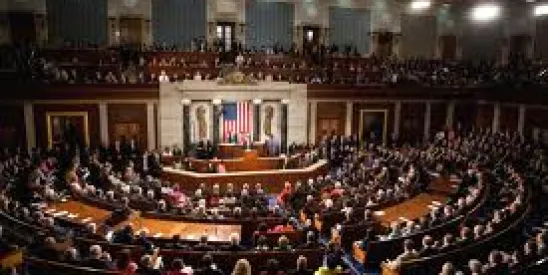Yesterday, a bipartisan group of key lawmakers on the House Judiciary Committee joined Rep. George Holding in introducing H.R. 5233, the Trade Secrets Protection Act of 2014, a bill to create a federal civil remedy for trade secret theft. Reps. Jerrold Nadler, Howard Coble, John Conyers, Jr., Steve Chabot, and Hakeem Jeffries co-sponsored this important piece of legislation that addresses a growing problem for American businesses.
Unlike other forms of intellectual property – patents, trademarks, and copyrights – there is no federal civil remedy available to protect trade secrets. This lack of protection puts American businesses at risk of theft from both domestic and foreign entities. Trade secret misappropriation can occur through a cyberattack, through a voluntary or involuntary disclosure by an employee, or by a joint venture partner. As businesses increasingly rely on globalized supply chains and constant connectivity, the results of years of research and development, protected by trade secret laws, are more at risk.
The Trade Secrets Protection Act would update the Economic Espionage Act to add federal civil actions in addition to the existing federal criminal statutes and array of state laws. Efforts to steal American trade secrets are becoming more sophisticated, and our laws need to keep pace. A large, cross-sector group of companies and associations wrote to support the legislation.
The introduction of this legislation comes just one month after a subcommittee hearing on trade secrets in the House Judiciary Committee. A companion effort led by Senators Coons and Hatch in the Senate, the Defend Trade Secrets Act (S. 2267), was introduced in April. The bipartisan, bicameral nature of this effort to protect American trade secrets is important to turning the legislation into law, which is a hallmark of the Chairmen and Ranking Members of the House and Senate Judiciary Committees, and a credit to the process.
As noted in our previous post on this topic, a consistent, harmonized legal framework will provide a more efficient and effective legal structure to protect and promote U.S. global competitiveness and preserve high-quality U.S. jobs. It will also put trade secret protection in-line with the remedies available for owners of other forms of intellectual property. Congressional action this year to address the IP inequity would be an enormous boon to American businesses and the innovative economy as a whole.




 />i
/>i
